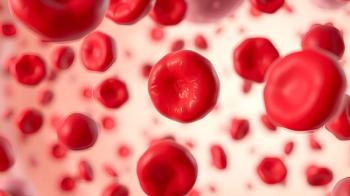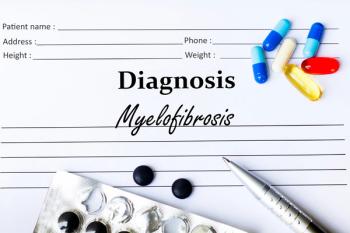
Goals of Therapy for CLL
Experts in hematology/oncology discuss goals of therapy and optimal treatment selection for patients with chronic lymphocytic leukemia.
Episodes in this series

Bhavesh Shah, RPh, BCOP: I know that there were some challenges that we encountered, especially during COVID-19. When having patients come into the clinic for infusions, of course, there are logistical challenges. There are infusion-related reactions that patients may be concerned about. You’re right, having an oral option where you can have a patient go in for monthly blood draws, and then you can have maybe a telemedicine visit. That definitely makes it more appealing for a patient, especially during times of COVID when you’re trying to kind of reduce the footprint, and patients may not be wanting to come in.
Ryan Jacobs, MD: I agree with you. BTK [Bruton tyrosine kinase] inhibition is a very low-touch intervention as I like to describe it to my patients, and it can almost be done completely virtually if you needed to, and so that was helpful to do during the pandemic. I used, particularly during the pandemic, BTK inhibitors as single agents. I don’t add CD20 except for a rare circumstance like concurrent severe autoimmune hemolytic anemia or ITP [immune thrombocytopenic purpura]. Of course, with venetoclax [Venclexta] the CLL14 [clinical trial]-based approach contains obinutuzumab [Gazyva], and that’s a significantly more immune-suppressive approach. We know anti-CD20 therapies are really interfering with our patients’ ability to respond to COVID vaccination. Almost 0 patients are able to mount an antibody response to COVID vaccination when they’re on an anti-CD20 therapy, maybe for up to a year after they stop. Those are considerations that have to be weighed as well depending on where we are with whichever variant of COVID is surging at the moment.
Bhavesh Shah, RPh, BCOP: That brings me to another perspective that we should probably talk about, which is Evusheld [tixagevimab co-packaged with cilgavimab]. I’m sure you have plenty of patients on it, and we know that they’re the tier 1 category in terms of getting pre-exposure prophylaxis. Have you had any challenges with having patients getting it, or access issues? I’m sure you’ve been using it for patients with B-cell depletion therapies and BTK inhibitors.
Ryan Jacobs, MD: Yes, certainly. I kind of went in a triaged approach of certainly, patients on active therapies particularly with anti-CD20 agents should receive Evusheld, especially those that I had documented as not having had any antibody response to COVID vaccination. I was directing them early on, and now I’ve kind of expanded my recommendations as more broadly applied, to just any of my patients on treatment. Now, I’m even letting some of my CLL [chronic lymphocytic leukemia] patients that are on observation even know about it because not all of them actually were able to respond to vaccination as well. Access to Evusheld was a little trickier earlier on. We found some clinics in my Charlotte market that were pretty good at getting patients in. Now, here at Levine Cancer Institute, Atrium Health, we’re able to give it here, and so I’ve definitely been using that as a tool for prophylaxis.
Bhavesh Shah, RPh, BCOP: I could tell you that we probably have, I think, at least 20 to 30 patients every week that we are doing it in; pulmonary and rheumatology oncology and renal transplant patients. It’s definitely a great option. I think one of the things that we always get questions as pharmacists is, “Do you have to hold the patient’s therapy while they’re receiving it?” We’ve been actually coordinating it on the same day as their treatment, so they don’t have to come back for another visit. The observation period is pretty simple. It’s an intramuscular injection, so you’re not really worried about those hypersensitive reactions that you see with some of the other monoclonal antibodies. We’re even thinking that we may actually reduce the observation period to 30 minutes because we haven’t seen reactions, and we know that there’s a lesser incidence of reactions for intermuscular versus IV [intravenous] infusions that patients may receive for monoclonal antibodies. I just wanted to share that pearl because I know many institutions are struggling with operationalizing this in their clinics as these patients are coming through and sharing some of that wisdom can be beneficial.
Transcript Edited for Clarity
Newsletter
Stay informed on drug updates, treatment guidelines, and pharmacy practice trends—subscribe to Pharmacy Times for weekly clinical insights.



























